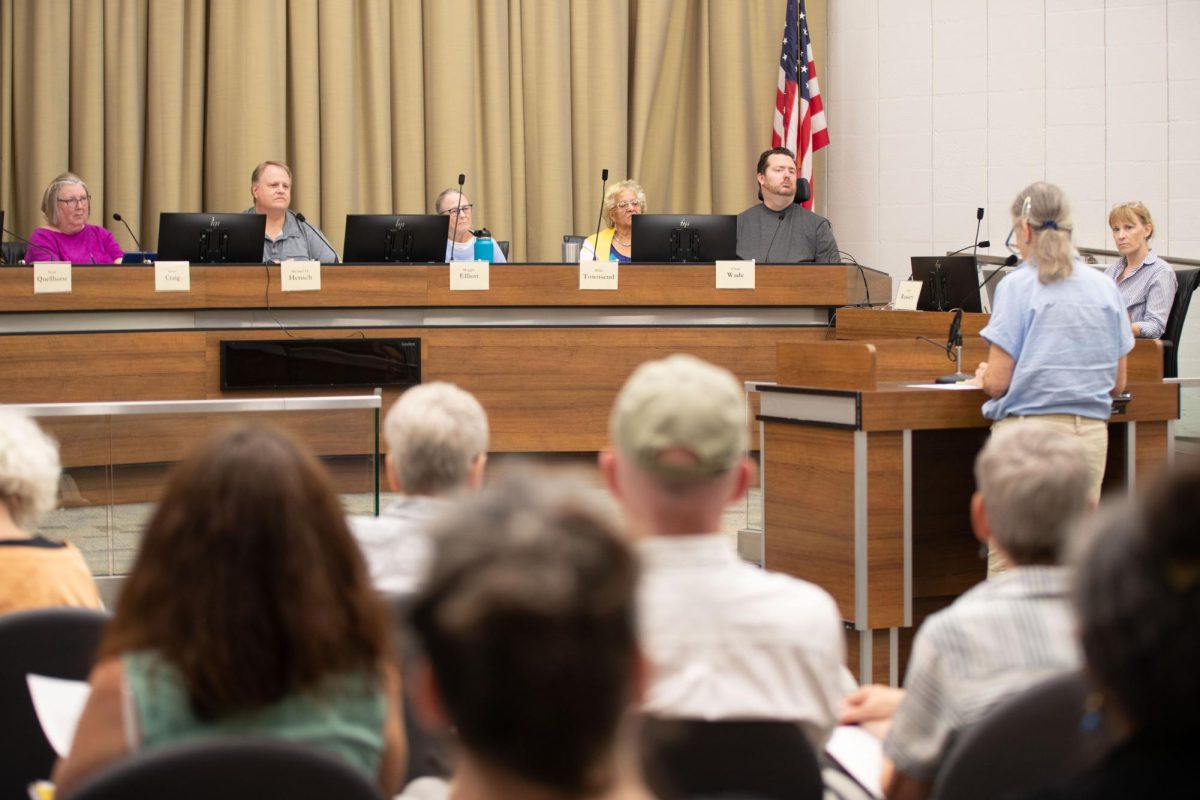The height of new single-family residences in Iowa City could be lowered by a proposed amendment to the city’s zoning code.
A proposal from Iowa City residents would reduce the maximum height of new residential buildings from 35 feet to 27 feet to preserve neighborhood character and increase affordable housing. The Iowa City Planning and Zoning Commission voted 6-1 Wednesday to defer any action on the proposal. The commission will have another meeting to discuss it later in October.
The Northside Neighborhood Association proposed the amendment that would affect neighborhood stabilization residential zones, or RNS-12, which city documents define as existing to preserve the single-family character of neighborhoods.
Members of the neighborhood association attended the meeting and stressed the importance that the proposed amendment would only affect new buildings.
Susan Shullaw, a member of the neighborhood association’s steering committee, said the current rules negatively affect affordable housing.
“We believe that this negatively impacts affordable housing because it gives an incentive to developers to convert existing single-family structures and demolish and replace them with larger structures with larger occupants,” Shullaw said.
Before the meeting, the neighborhood association sent a letter to the city regarding its proposal, in which it called for the commission to defer its vote due to confusion between the two parties over the specifics of the proposal. As explained by city staff, the city had originally interpreted the proposal to encompass all buildings in RNS-12, but the neighborhood association clarified that the change would only affect new buildings.
But Iowa City staff disagreed with the proposal and recommended the commission to not approve or defer it. Iowa City Planner Anne Russett said one concern of the proposal was that it didn’t account for building types other than residential as RNS-12 also includes daycares and educational institutions.
“If the purpose of height regulations is to promote reasonable building scale and relationship between buildings, all land uses should be considered when establishing a height limit,” Russett said.
Despite this recommendation, the commission voted 6-1 in favor of deferring any action, with commission member Maria Padron the lone dissenter.
Ahead of the vote, Commission Chair Michael Hensch said he intended to vote in favor of deferral to allow city staff to resolve confusion with the neighborhood association’s proposal.
“Overall, fundamentally, neighborhood integrity and character is a high priority of mine. A whole city can’t be taken over by rentals,” Hensch said. “There has to be a place for people who … plan to stay here to contribute and be good neighbors over time.”



